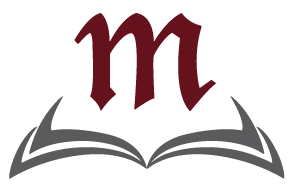Among the tasks of any teacher is finding ways to incorporate student problem-solving in the classroom. However, this school year, Glasscock Elementary 4th grade teacher Rebecca Ungerer had to complete some creative problem-solving of her own -- specifically, how to more fully engage students in interpersonal collaboration after so much time over the past two school years students spent learning from home.
Her solution: An after school book club aimed more at reading for enjoyment, building relationships, and taking a break from the stressors of the school day.
“The whole purpose of the book club was to have that opportunity for kids to help one another. I knew kids needed to practice reading and also see other kids enjoy reading,” Ungerer said, adding she also “missed reading books for the fun of books.”
Her weekly student book club has provided an opportunity to cultivate a joy of reading along with hands-on projects. For Ungerer, the degree to which students have worked together has been a pleasant surprise.
“I could not believe these kids were so good at collaborating,” she said. “Seeing them grow in their relationships with each other, it gives hope for where they’re going to go when they leave here.”
Ungerer typically meets with about ten fourth- and fifth-graders Thursdays after school. So far, the group has read Mary Downing Hahn’s The Ghost of Crutchfield Hall, a young adult mystery novel.
Although they finished reading the novel some time ago, the group is still working on a project associated with it. Under Ungerer’s direction, the students have turned the novel into a three-act play, which they’ll perform using their own handmade puppets.
Eventually, the plan is to video record the performance and using a video editing software, create a short film; the students have even shown interest in a potential live performance.
“They’re going to get all of that wonderful experience, which might spark a career choice in the future,” Ungerer said.
Moving forward, Ungerer is planning for the book club to transition to poetry (both reading and writing) and short fiction, and she’s eyeing growing the club by providing a virtual option so more students can participate from home if they can’t arrange after-school transportation.
“I’m always looking for an opportunity to expand it,” she said, calling this year her “beta test year.”
The after school book club also helps address issues Ungerer sees with her students during the school day.
While the regular school day is primarily focused on pure academics, the book club gives students an opportunity to develop important skills in a way that’s “not scripted academics.” For Ungerer, it helps students learn to “slow down” which she’s noticed is an issue for some students in her class.
“It’s been a long time since they’ve been in a classroom full-time. These kids really haven’t been in a classroom for an entire year since the second grade [...] What I’m seeing is, students have no problem shifting gears quickly, but struggle to slow down and focus on one thing,” she said. “It’s a reflection of them being at home so much and given a packet of work and not having as much interaction with problem-solving. When you’re at school there’s a lot of opportunity to help students problem-solve -- to think for themselves.”
As a result, Ungerer says she’s found herself doing more to illustrate to students the type of sustained focus she wants to see from her students.
“I’ve done a lot of modeling, thinking aloud, that’s helped a lot of students,” she said. “I want to create that safe environment for them so that it’s okay to give a wrong answer. So the thing that’s worked best for me is modeling.”
Last year, Ungerer worked as one of the district’s Distance-Learning teachers, dealing with students almost exclusively online. This year, she’s had the opportunity to work more closely with students in-person and her book club is an extension of that. However, that’s not to say Ungerer is completely against incorporating elements of online learning.
“I totally believe in a blended learning environment,” she said, adding: “That has nothing to do with the pandemic. It has everything to do with living in a digital society.”
However, it’s the time together, in-person, that she sees more opportunities for what she called “unplanned successes.”
For example, while her book club was reading The Ghost of Crutchfield Hall she found opportunities to discuss historical information when students had questions about certain parts of the book.
And the book club has direct connections to the content students are learning in class.
“They have to make inferences, they have to comprehend the plot -- those are standards we teach in class,” Ungerer said.
But beyond those academic standards, Ungerer says the most impactful part of the book club is “the kids building those relationships and having fun.”
Students also designed their own T-shirts (an open book with a paw print and the words “Bulldog Book Club”) which they wear on book club days.
It’s another aspect of the book club that makes Ungerer encourage other teachers to start similar after-school groups: “Every kid needs this opportunity.”



